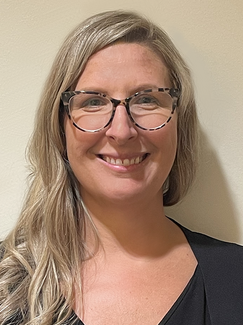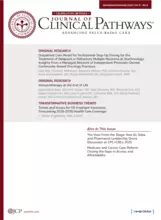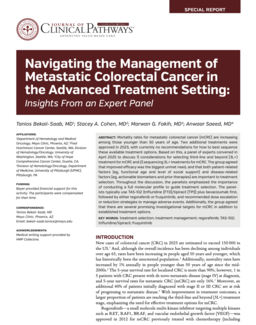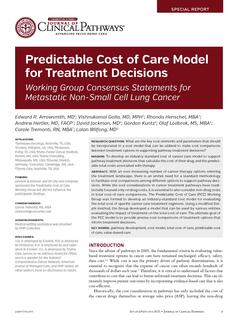Overcoming Resistance to Targeted Therapies in CLL Through Personalized Treatment Approaches
In this interview, Jennifer Woyach, MD, director of the Division of Hematology and co-leader of the Leukemia and Hematologic Malignancies Research Program at The Ohio State University Comprehensive Cancer Center, discusses how resistance to Bruton tyrosine kinase (BTK) and BCL2 inhibitors is shaping the future of personalized treatment and molecular testing in chronic lymphocytic leukemia (CLL).
Transcript
The study highlights a paradigm shift with BTK and BCL2 inhibitors in CLL. From your clinical experience, how have these targeted therapies changed the standard treatment sequencing and decision-making for frontline vs relapsed patients?
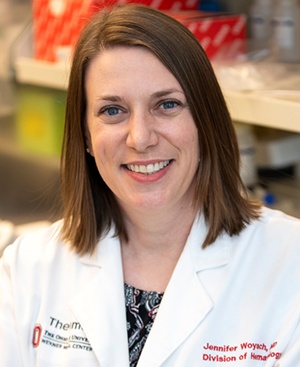 Jennifer Woyach, MD: Now that therapy for CLL is almost exclusively targeted therapy, with the current treatment paradigms we can tailor treatment to an individual patient while taking into account genetic risk, comorbidities, and, importantly, patient preferences for fixed duration vs continuous treatment and intravenous (IV) vs oral.
Jennifer Woyach, MD: Now that therapy for CLL is almost exclusively targeted therapy, with the current treatment paradigms we can tailor treatment to an individual patient while taking into account genetic risk, comorbidities, and, importantly, patient preferences for fixed duration vs continuous treatment and intravenous (IV) vs oral.
Given the growing prevalence of resistance mutations like those in BTK, PLCG2, and BCL2, how are you currently incorporating molecular testing into your routine diagnostic workflow, and what barriers still exist to broader adoption?
Dr Woyach: At our institution, we screen patients for BTK mutations and use this to perform clinical trials of early intervention on resistance. Outside of this purpose, we find that screening allows us to be proactive in detecting and treating BTK-inhibitor-resistant disease. We also test patients at the time of each treatment initiation and relapse for resistance mutations to help choose the next therapy.
This study mentions both genetic and non-genetic mechanisms of resistance. Could you share how non-genetic resistance manifests in your patients and whether it alters your therapeutic approach differently than genetically driven resistance?
Dr Woyach: Non-genetic mechanisms of resistance are more difficult to identify, as there are not laboratory tests that can be run for diagnosis. We know less about how non-genetic mechanisms of resistance alter dependence on therapeutic pathways, and these types of mechanisms may require changing drug classes (eg, changing from BTK to BCL2 inhibitor) rather than staying in class (eg, covalent BTK inhibitor [cBTKi] to non-covalent BTK inhibitor [ncBTKi]).
Looking forward, how do you see the role of personalized treatment strategies evolving in CLL care—particularly in light of emerging resistance patterns and the potential for adaptive treatment regimens?
Dr Woyach: In the future, we will be better able to understand a priori who is most likely to develop resistance to specific treatments, and we can use this knowledge to tailor treatment approaches, such as the use of combination therapies.







